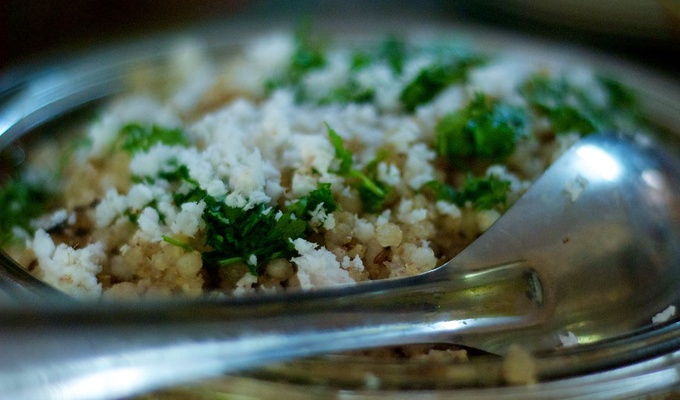Sabudana khichadi is a dish originating from western India, primarily associated with Maharashtrian and Gujarati cuisines. Made from soaked tapioca pearls (sabudana), it is commonly prepared during Hindu fasting periods such as Navratri, Ekadashi, or Mahashivratri due to its absence of grains.
The dish typically includes peanuts, boiled potatoes, cumin seeds, green chilies, and occasionally grated coconut, and is seasoned with salt and sometimes sugar. In traditional preparation, sabudana is soaked overnight, then stir-fried with the remaining ingredients and garnished with coriander leaves and lemon juice. Sabudana is derived from cassava root, which was introduced to India from South America in the late 19th century, and its culinary use in khichadi reflects adaptation to local fasting practices.
